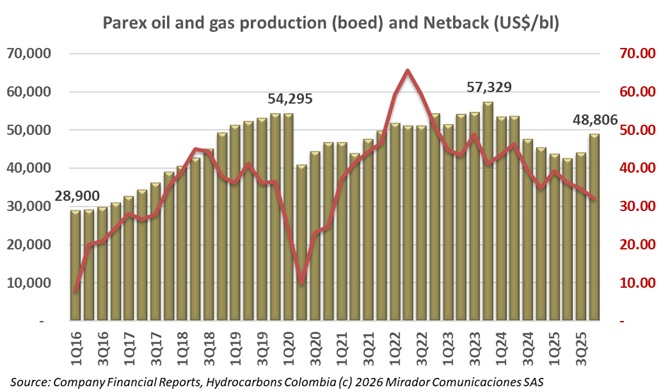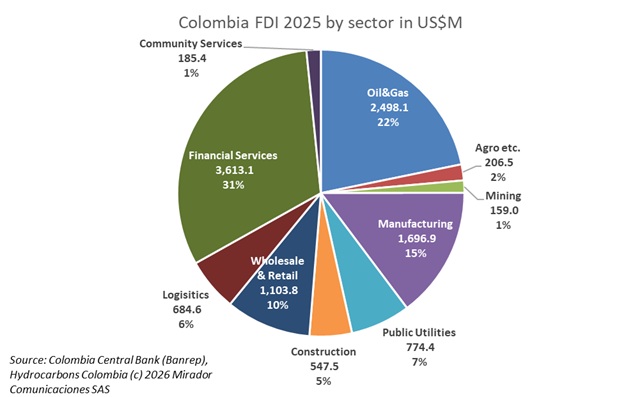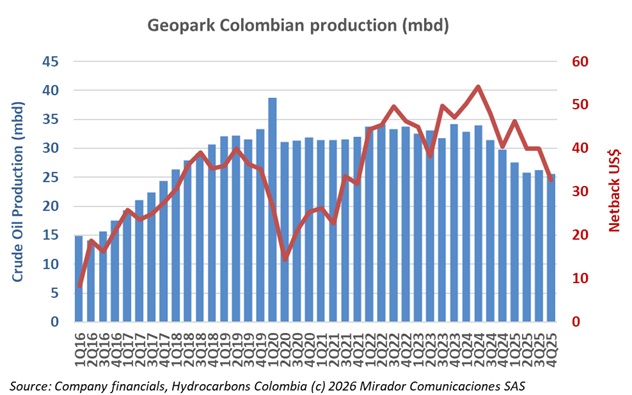
Wednesday, March 4th, 2026
Parex Resources reported 2025 annual funds flow from operations of US$455M and free funds flow of US$145M, while increasing proved developed producing and proved reserves per share by 4% and proved plus probable reserves per share by 8% compared to 2024.




Colombia’s foreign direct investment (FDI) totaled US$11.469B in 2025, representing a 16.1% decline from US$13.684B in 2024 and marking a 33.2% cumulative drop since the 2022 peak of US$17.182B.
Parex Resources will invest more than US$100M in two exploratory wells in Colombia’s Piedemonte Llanero region as part of an alliance with Ecopetrol aimed at discovering oil and gas reserves to address the country’s supply challenges.
Ecopetrol generated 87,130 jobs through contractor companies during 2025 while increasing its procurement spending to CoP$23.8T, representing a 4.8% rise from the previous year’s CoP$22.7T according to reports from El Tiempo and La República.
Colombia’s national government announced the appointment of electrical engineer Víctor Paternina as Vice Minister of Energy, bringing over 18 years of energy sector experience. The Sincelejo native, educated at Universidad del Norte with an MBA from Universidad de los Andes, previously served as Energy Director where he structured energy communities and led Colombia Solar public policy definition—key pillars of the just energy transition with territorial and social focus.

GeoPark says it achieved all key 2025 guidance metrics despite materially lower oil prices, while resetting the portfolio, reset positioning the company for scale and growth. The company characterized 2025 as a transition year executing a strategy of “Protecting What We Have, Returning to Growth.”
Colombia’s petroleum and gas sector voiced strong opposition to the wealth tax imposed under the government’s emergency decrees, warning the measure threatens investment capacity and creates discriminatory tax treatment while failing to account for the industry’s long-term investment cycles.